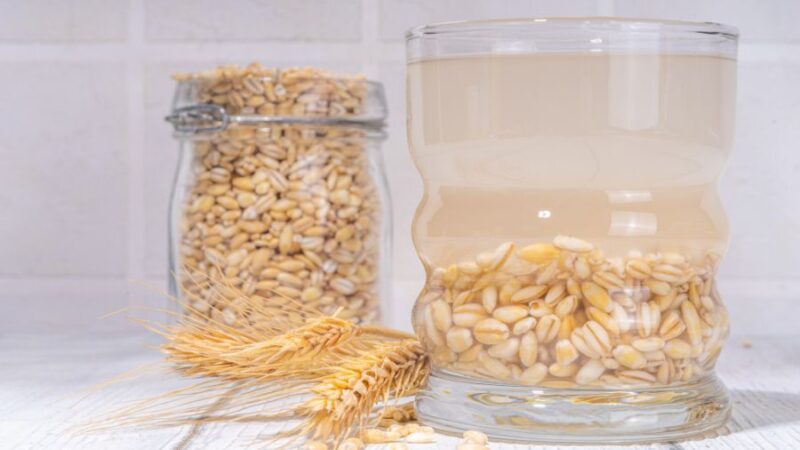10 Myths About Weight Loss: What You Really Need to Know

Losing weight is one of the most talked-about topics in health and wellness. From celebrity diets to fitness influencers, there’s no shortage of advice-and misinformation. Many common beliefs about weight loss are actually myths that can slow progress, cause frustration, or even harm your health.
In this article, we’ll break down 10 of the most common weight loss myths, explain why they’re misleading, and share evidence-based strategies for achieving lasting results.
Myth 1: You Must Cut Out Carbs to Lose Weight
Carbs have gotten a bad reputation, but eliminating them entirely isn’t necessary for weight loss. Carbohydrates are a primary energy source for your body, especially your brain and muscles. The key is choosing the right types of carbs:
- Focus on complex carbs like whole grains, fruits, and vegetables.
- Avoid excessive intake of refined carbs and sugars like white bread, pastries, and sodas.
Balanced carb intake supports energy, mood, and metabolism, making it easier to stick to a sustainable eating plan.
Myth 2: Skipping Meals Helps You Lose Weight Faster
Skipping meals may seem like a shortcut, but it often backfires. Going long periods without eating can:
- Slow down your metabolism
- Increase cravings and overeating later
- Lead to nutrient deficiencies
Instead, aim for regular, balanced meals that include protein, fiber, and healthy fats to maintain energy and satiety.
How to Lose Weight During Menopause?
Myth 3: Fat Makes You Fat
For years, dietary fat was considered the enemy. In reality, healthy fats are essential for your body and can even support weight loss. Sources like:
- Avocado
- Nuts and seeds
- Olive oil
- Fatty fish
…help you feel full, regulate hormones, and provide essential nutrients. The real culprit is trans fats and highly processed oils, not natural, healthy fats.
Which High Carb Foods to Avoid to Lose Weight
Myth 4: Exercise Alone Is Enough to Lose Weight
Exercise is crucial for health, but relying solely on workouts to lose weight can be frustrating. Weight loss is mostly influenced by calories in vs. calories out, which means nutrition plays a larger role than exercise alone.
Exercise is still essential because it:
- Builds muscle (boosting metabolism)
- Improves cardiovascular health
- Supports mental well-being
Combining a healthy diet with consistent physical activity yields the best results.
Does Sweating Help You Lose Weight?
Myth 5: You Can Target Fat Loss in Specific Areas
“Spot reduction” is a myth. Doing endless crunches won’t melt belly fat, just as arm workouts won’t guarantee slimmer arms. Fat loss occurs systemically, meaning your body decides where it burns fat first based on genetics, hormones, and lifestyle factors.
Focus on overall fat loss, strength training, and cardiovascular exercise for balanced results.
Myth 6: Supplements Are a Shortcut to Weight Loss
Many products promise rapid weight loss, from fat burners to metabolism boosters. While some supplements may offer small benefits, there’s no magic pill. Weight loss depends on:
- Balanced nutrition
- Regular exercise
- Healthy lifestyle habits
Supplements should only be used as a supportive tool, not a replacement for real effort.
Myth 7: Eating Late at Night Causes Weight Gain
It’s not the clock-it’s what and how much you eat. Your body doesn’t process calories differently at night. Late-night snacking can contribute to weight gain if it leads to excess calorie intake, but a healthy snack before bed is fine.
Focus on overall daily calorie balance and making mindful food choices rather than avoiding food at a specific time.
Myth 8: Rapid Weight Loss Is the Best Way
Crash diets and extreme approaches promise fast results, but they’re usually unsustainable and can lead to:
- Muscle loss
- Slowed metabolism
- Nutritional deficiencies
- Weight regain (often more than lost)
Slow, steady weight loss of 1–2 pounds per week is safer, sustainable, and easier to maintain long-term.
Myth 9: All Calories Are Equal
While calories matter, the source of calories also impacts weight loss. 200 calories of soda and 200 calories of almonds affect your body differently. Nutrient-dense foods:
- Stabilize blood sugar
- Promote satiety
- Support metabolism
…while empty calories from processed foods can lead to overeating and fatigue.
Myth 10: You Have to Give Up Your Favorite Foods Forever
Restrictive diets that ban certain foods entirely are often doomed to fail. Enjoying occasional treats in moderation:
- Reduces cravings
- Improves adherence to a healthy eating plan
- Promotes a positive relationship with food
The key is balance, portion control, and mindfulness, not complete deprivation.
Conclusion
Weight loss is complex, and it’s easy to fall for myths that promise quick fixes or simplify the process. By separating fact from fiction, you can adopt a realistic, sustainable approach that supports long-term health:
- Focus on nutrient-rich, balanced meals
- Incorporate consistent physical activity
- Practice mindful eating
- Prioritize sleep and stress management
- Avoid shortcuts that promise unrealistic results
Remember, weight loss isn’t just about a number on the scale-it’s about building healthy habits that last a lifetime.






